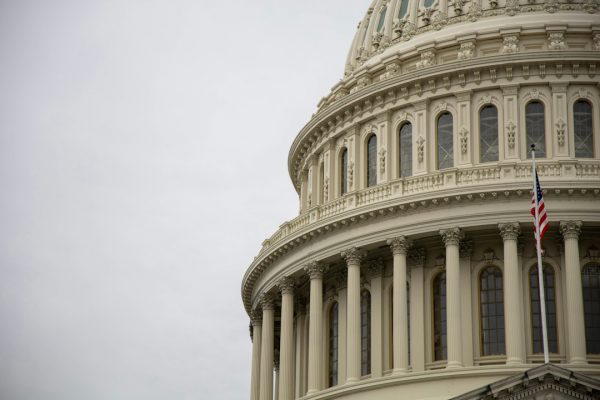With nearly unlimited access to unlimited information, it is no surprise that there has been a noticeable rise in conspiracy theories, conspiracy theorists, and the fervor which accompanies this age-old obsession. The amount of data we have readily available at our fingertips, combined with the global connectivity provided by the internet, has made it easier than ever to discover, debunk, and defend conspiracy theories (CTs).
Life In a Fallen World and In the Image of God

The reality of actual conspiracies and the fascination with CTs is part of living in a fallen and broken world. If what the Bible teaches about mankind’s radical corruption by sin and the cosmic powers over this present darkness is true, then conspiracies should not surprise us in the least. Lust, greed, and power undoubtedly fuel sinister activities by everyone, from Republicans and Democrats, to “Big Pharma,” “Big Ag,” “Big Tech,” “Big Oil,” big whatever, to even you and me. The wicked make “secret plots” (Ps. 64:2) and “accept bribes in secret to pervert the ways of justice” (Prov. 17:23). As one comedian put it, governments aren’t batting a thousand and telling us the whole truth.
Likewise, if the Bible teaches that we have been made in the image of God, then we should rightly be concerned with discovering the truth, exposing deeds of darkness, and bringing them to the light. We should long for wrongs to be made right; we should not want the wicked to get away injustice and corruption; and we should rejoice when the plans of the wicked are brought to nothing and justice is served. This is what many of the Psalms are all about (e.g., Psalm 37) and, in some sense, the fascination with CTs reflects this God-given desire for truth and justice.
And yet, as real, valid, and good as the CT enterprise may be at times, there are several serious dangers with it that, if not acknowledged and addressed, will cause us to drift from what we have heard (Heb. 2:1) and not walk in step with the truth of the gospel. As pastors, our concern is not with the existence of CTs, or the reality of actual conspiracies, but with their formative power on Christians and how they are shaping us. The concerns we have with conspiracy theories, and the inevitably insatiable obsession with them, is fourfold: they dissolve humility and hope, they distract from the reality of God’s judgment, they displace Bible study and prayer, and they distort our view of the church.
1. Conspiracy Theories Dissolve Humility and Hope
The Christian approaches the knowledge of God, his Word, and his world with a Christ-like and Spirit-wrought humility. The more the Christian learns, the more humble he ought to become. CTs produce the opposite in us. The further we wander down the CT rabbit-hole, the more prone we are to becoming arrogant. We all unfortunately know someone like this, someone who is right about everything, while everyone else is either wrong (at best) or part of the conspiracy (at worst). Like the ancient Gnostics, only we are smart enough to uncover the real truth; only we have had our eyes opened (one might say we are “woke”). This attitude, in turn, makes us harsh and impatient toward others who have not arrived at the same conclusions as us. What’s worse, we can end up thinking the problem is only “them” and their tribe, while we are immune from the same sins.
CTs dissolve our hope as well, replacing it with an unhealthy cynicism. We think and assume the worst of everyone, which, as Hayden Hefner has argued, is actually a form of drunkenness: “The cynic rightly diagnoses the prevalence and folly of sin. This isn’t a bad thing. Recognizing the depth of human depravity is essential to faith in Christ. However, the cynic doesn’t stop with a sober assessment of human depravity; he often spirals into a God-less view of the world.” Christians must, however, must be sober-minded in order to set their hope fully on the grace that will be brought to us at the revelation of Jesus Christ (1 Peter. 1:13), which brings us to our next concern.
2. Conspiracy Theories Distract Us from God’s Judgment
In a fallen world, CTs offer no solution to, or guarantee of, justice. Even if a conspiracy is proved true—and you have been right all along about what really happened on 9/11 or during the COVID pandemic—there is no guarantee that anything can or will be done about it, especially if the administers of justice are in on the conspiracy themselves. When our time and energy is devoted to CTs (more on this below in point #3), and we keep discovering how deep the corruption goes, the reality of God’s future and final judgment can be diminished to the vanishing point. We can be distracted from the blessed hope that Christ will come again to judge the living and the dead, to right all wrongs, and to administer perfect justice. And when we lose sight of this reality, the outcome is fear, despair, outrage, or even trying to take matters of vengeance into our own hands.
The gospel of Jesus, however, offers hope to those who have been driven to fear, despair, or outrage by their obsession with CTs. We have an unshakeable confidence in the day of reckoning, when the Lord Jesus Christ returns to put the world to rights, when every ounce of darkness is banished from every nook and cranny of our world and hearts once for all. Ray Galea sums it up well: [Conspiracy theories] promote fear without a meaningful solution. In contrast Christianity promotes confidence in Christ for both the present and the future—even in the worst of tyrannies. Because Jesus is alive and ruling, God’s people can have an inexpressible joy and assurance.”
Living in light of God’s future judgment does not necessarily mean we must reject every CT, bury our heads in the sand, and turn a blind eye to injustice in our world. Being aware of CTs can help us take inventory of the corruption and injustice in our world so that we long all the more for the coming of the Lord. But no amount of time spent researching and exposing CTs will ever satisfy our longings for justice. If our fascination with CTs distracts us from the Christian’s hope, and prevents us from living the Christian life of love, joy, and peace, then we need to repent and reconsider this seemingly harmless hobby.
3. Conspiracy Theories Displace Bible Study and Prayer
One of the biggest concerns we have is the amount of time and energy that Christians devote to conspiracy theories that should be given to virtually any other spiritual discipline. The time that should be spent praying and reading the Bible—studying it, meditating on it, memorizing it—is replaced by endless podcasts, YouTube trails, and doomscrolling. This is where the obsession with CTs is easily seen for what it most often is: idolatry.
CTs are one more thing to captivate our hearts and keep us from consuming Scripture and praying without ceasing. They become all we talk about, joke about, post about, and think about. We say we can’t find the time or focus to read the Bible, but we will make all the time in the world to stay up to date on the latest political shenanigans and breaking news. We say we can’t sit through a Sunday School class or a sermon, but we have no problem listening to a long-form podcast that drones on and on about the latest CT. We care more about the deep state, pandemics, vaccines, Trump, Obama, the Bidens, Hamas, Russia, UFOs, assassinations, climate change, and Hollywood than anything God has graciously revealed to us in his all-sufficient, all-satisfying Word. We have moved on from the milk of the Word to the “meat” of conspiracy theories, but have become emaciated in the process.
Seeking knowledge, making sense of God’s world, and uncovering truth are indeed good things. The ability to make connections between people, places, things, and events is a God-given gift. But tracing the connections between stories and digging deep into details to uncover the truth is not primarily for conspiracy theories, but a task required of Christians for the study of Scripture! The Bible is a much more exciting, invigorating, important, and life-changing story to study that has an infinitely better ROI. And the more time you devote to Scripture, the more equipped you will be handle CTs.
In the following two images, we get a glimpse of just how connected the Bible is. You could spend a lifetime studying God’s word and still barely scratch the surface of all that God has given us!


What if our zeal for CT research was replaced with a careful in-depth study of Scripture? What if we spent our time together sharing all the connections we have discovered in Scripture, and geeking out about how all Scripture points to Christ, instead of discussing how everything is connected to the deep state? What if all the time we spent listening to podcasts devoted to CTs was replaced by listening to podcasts that went deep into the Bible? In other words, what if we were known as gospel-fluent, Bible-saturated, Christ-exalting followers of Jesus?
We all meditate on something; we all “do devotions” every day, whether you realize it or not. The question is, what are we meditating on? In a CT obsessed world, may we be like the blessed man, who meditates on God’s law day and night (Ps. 1:1-2). May we be like the Bereans who received the Word eagerly and examined the Scriptures carefully, communally, and constantly—all in order to behold the glory of Christ and believe (Acts 17:10-11).
4. Conspiracy Theories Distort Our View of the Church
If we have become cynical and despairing of the corruption and injustice found in the world, it won’t be long before we start to suspect everyone in the church of the same. The more time we devote to CTs, and following the people who peddle them and feed off their polarizing effects, the more we will become jaundiced. When CTs displace Bible study, prayer, and fellowship with believers, our view of the church will become distorted. We will be conditioned to be skeptical of everyone and assume the worst about brothers and sisters in Christ, rather than bearing all things, believing all things, hoping all things, and enduring all things (1 Cor. 13:7).
Furthermore, for the Christian conspiracy theorist, there is a very real danger that their “fellowship” with other believers will be based primarily on their devotion to the CT enterprise. Rather than having fellowship based on the gospel of Jesus Christ and the historic creeds of the Christian faith, with in-person believers in a local church, it will be fellowship based on who is in your social media tribe or not, who is vaxxed or not, who supports masks or not, who is “woke” or not, who likes Joe Rogan or not, who supports a political party or not. And when everyone else except your tribe is the problem, there is no room for charity and nuance, no time for common ground, no place for convivial and irenic discussion.
It is certainly and unfortunately true that corruption, injustice, and all manner of wickedness have indeed crept into the (visible) Christian church. The NT constantly warns is about this reality, and it must be lamented and it must be addressed. However, the belief that every Christian is corrupt, every denomination is compromised, every shepherd is “for sale,” every Christian ministry is a woke extension of some liberal cabal, is an incredibly unhealthy and unbiblical view of the church. It assumes there are only a few genuine Christians left, a remnant who have not bowed the knee to Baal (a remnant, by the way, that will look very much like the conspiracy theorist’s tribe). But such a view means that the gospel of the kingdom has largely failed, and the gates of hell have done a pretty good job of prevailing against the church.
As scandals and conspiracies come to light in the church, let’s approach them with a healthy and biblical view of the church, remembering that the church is the present form of the future new Jerusalem (Gal. 4:26; Heb. 12:22), the bridal-city of God that exists even now among the cities of men (Rev. 21:9-22:5), that brings life and healing to the nations. Let’s address these issues boldly, but with charity and nuance. If a part of the body of Christ is infected, let’s treat it with a scalpel and not a bulldozer.
The Dangers of Drift and Deconstruction
Conspiracies have been and will be part of life in a fallen world. If our obsession with CTs is left unchecked, and we fall prey to these four dangers, we will find ourselves drifting from what we have heard and on the path to deconstruction. Rather than devoting our time and energy to CTs, the author to the Hebrews reminds us that we must pay much closer attention to what we have heard, lest we drift away from it (Heb. 2:1).
The task for the Christian is to understand the formative power of CTs and to consider how they impact our treatment of others, our hope for the future, our spiritual disciplines, and our view of the church. We must be honest with ourselves, and consider whether we have traded hope for despair, thanksiving for slander, peace for anxiety, joy for cynicism, or patience for vengeance. Dan Darling writes: “We should avoid the rabbit trail of conspiracy theories because they both distract us from pursuing what is true and good and beautiful and because untruths damage the witness of the church.” To indulge in CTs, Darling reminds us, is “corrosive to the soul, damaging for our public witness, and it hurts neighbors we are called to love.”
The all-consuming quest for “truth,” however noble it may be, must not come at the expense of Bible study, prayer, and love for one another. If we have all knowledge of every CT, but have not love for God and neighbor, we are nothing. The Bible teaches us to us acknowledge the reality of conspiracies but also commands us to remain sober-minded, saturated in Scripture, constant in prayer, confident in the power of the gospel, and hopeful for our future, when God in Christ will put the world to rights.
Finally, brothers, whatever is true, whatever is honorable, whatever is just, whatever is pure, whatever is lovely, whatever is commendable, if there is any excellence, if there is anything worthy of praise, think about these things (Philippians 4:9).




